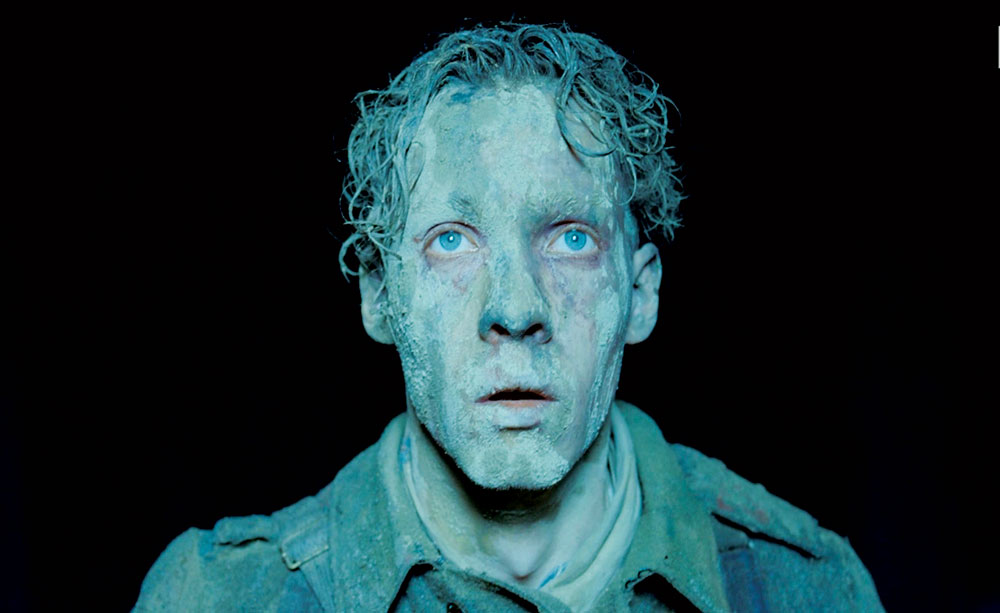
The Oscars loom, and I continue to review films that will be nominated or that I think should be nominated. This was a particularly good year for international film, and so this month I review another of the best films as well as a wonderful new documentary. The throughline should be apparent. In addition, my book review this month is essential reading for all human mammals; next month, I will review its (just-as-important) successor. Please enjoy.
All Quiet on The Western Front (2022—Netflix)
This might be the best movie of the year—that category of “Best Picture” where everything is expertly done and placed into a tight package. The writing, the cinematography, the settings, the editing, the acting, the directing, the costuming, and the sound are all first-rate and add up to spectacular viewing. This is what the best pictures look like.

All Quiet on The Western Front
Based on the seminal 1929 anti-war novel from Erich Maria Remarque and the fourth adaptation of the story, this version is powerful, grueling, frightening, and overall, stinging. We follow a small band of German WWI soldiers from young, eager volunteers to hardened young men who see horrors beyond belief. The lead character, Paul (played by a stunning Felix Kammerer), journeys through this hell-on-earth with eyes increasingly wide-open and a burgeoning dehumanized psyche that serves him well. Meanwhile, German Minister Matthias Ertzberger (the incomparable Daniel Brühl)—after charting mounting, unbelievable casualties—attempts to persuade the German High Command to enter an armistice. The film moves through both worlds adeptly, and that striking dichotomy becomes one of the best, lasting metaphors for the subjugation of war.
The original book by Remarque was extremely polemical in its time, and the most frightening aspect of this film version is the cruel recidivism of the story. This is one that never ends—consider Afghanistan, Iraq, and now, Ukraine—and one that never changes. Young men (and women) who are eager to fight get squeezed through a hand-cranked machine. Some are lucky enough to get out alive. This film version is powerful, vituperative, horrific, and important to see.
Now available on Netflix.
Retrograde (2022—Nat Geo)
This is a documentary that brings us into an unseen world we may have thought was in plain sight. We have seen images of the war in Afghanistan, we have seen images of the Taliban taking over the country, and we have seen images of the Kabul airport with swarms of desperate people begging to disembark. This doc, however, burrows into all of that and allows us to see things from the Afghan side as the Americans leave. It is hard to watch.

Retrograde
Point of view matters, and here we see the exit through the eyes of Afghan Army Lt. General Sami Sadat. Sadat oversees the final months of the American exit and the lightning-fast fall of the Afghan troops. As we watch, we know the ending that Sadat does not, and we cringe. He is either the most positive and hopeful human on the planet, or the most naïve and idiotic.
The film begins with the last American Army Rangers stationed in the country and then transitions the narrative to Sadat. We get inside access to meetings, hospitals, and even the front lines as Sadat makes a futile attempt to hold it all together. Of course we know he can’t, and he eventually leaves for England.
The access, the cinematography that brings us into the action, and the skilled editing that ties it all together adds up to a tight and vigorous package delivered by director Matthew Heineman. This is another powerful vision of war, its pawns, and its victims. Most of all, it is about humanity.
Available on National Geographic.
The Sixth Extinction (Elizabeth Kolbert)
This is a must-read. Alternately terrifying and fascinating, Kolbert shepherds us through Earth’s history, the first five mass extinction events, and then into the sixth extinction—the one we are watching unfurl in real time. This one includes the extinction of everything, and we, humans, are the asteroid.
Kolbert showers us in biology, geography, geology, oceanography, field study, history, and a host of other topics too long to mention. Yet we are reading neither a science textbook nor an academic paper; we are told a story, full of real people, anecdotes, personal minutiae, and a living history that bleeds into our own world. “Bleeding” might be the operative word here because it is the essential element of the narrative: humans are bleeding the Earth to death. Enticed to read?
Vincent Piturro, Ph.D. is a Film and Media Studies Professor at MSU Denver. He can be reached at vpiturro@msudenver.edu or follow him on Twitter. For more reviews, search The Indie Prof at FrontPorchNE.com.


0 Comments